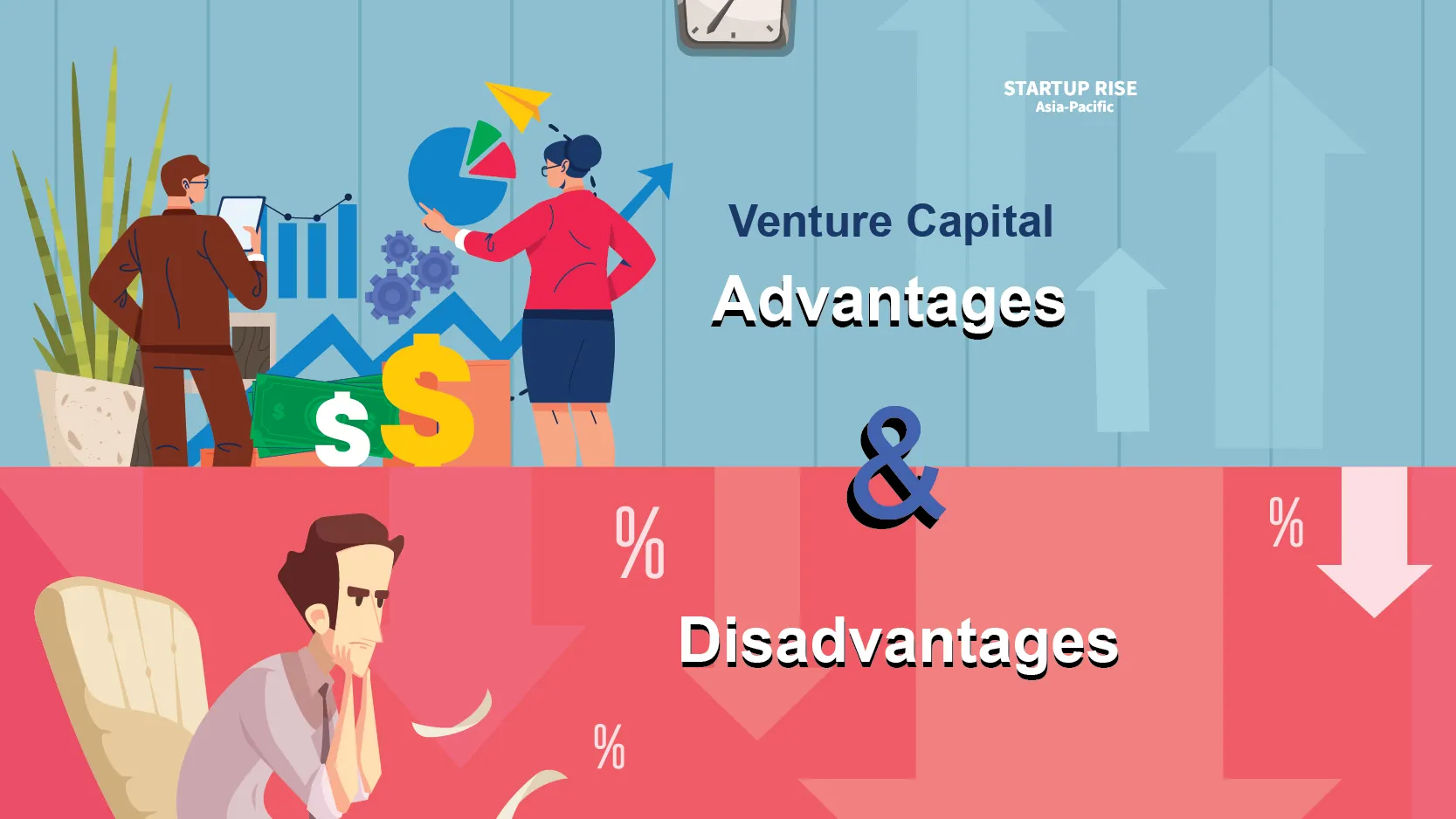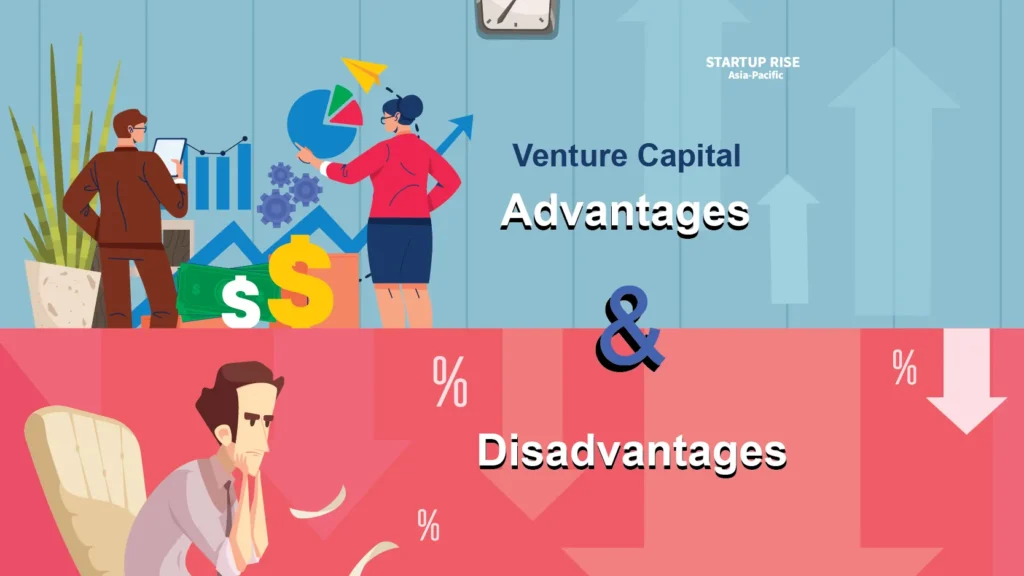

In this article, we will discuss venture capital, including its benefits and drawbacks. While venture capital offers many advantages, it also has some significant disadvantages that need to be carefully considered. It is important to understand both sides, as venture capital can greatly impact the success of a startup or small business.
What is Venture Capital?
Venture capital (VC) is a type of private equity that invests in small, high-risk businesses with the potential for rapid growth. It involves providing seed or early-stage funding and offers opportunities for above-average returns. In addition to financial support, VC funds also provide technical and managerial expertise, networking opportunities, and business support.
Startups often turn to venture capital because they have limited operating history and struggle to access traditional capital markets or bank loans. Venture capitalists typically raise funds from high-net-worth investors, investment banks, and financial institutions with the goal of consolidating ownership of the company.
How Does Venture Capital Work?
Venture capitalists use the funds they raise to invest in businesses with high growth potential or businesses that have already shown significant growth. They invest at different stages of a company’s development, with some firms focusing on early-stage start-ups and others on more mature businesses. Some VC firms also specialize in particular industries.
VC financing can provide substantial capital and adds value beyond just money. Investors often join the company’s board to help with strategic and operational decisions, contributing their skills and connections.
Read also – Startup Funding Stages Explained: A Comprehensive Guide
Venture Capital Advantages and Disadvantages
Table of Contents
Venture Capital Advantages
Business Expertise
Venture capitalists provide more than just financial support, they provide crucial guidance in various aspects of business management. Their expertise can help startups make better decisions in financial planning, human resource management, and other key areas. This assistance is essential to address challenges and pursue growth effectively.
Additional Resources
VC firms actively assist in critical areas such as legal, tax, and personnel matters. This additional support can be invaluable during key stages of growth, ensuring that startups have the resources they need to handle complex issues. By effectively addressing these areas, businesses can achieve faster growth and greater success.
Connections
Venture capitalists are typically well-connected within the business community. Access to their network can open the door to new opportunities, partnerships, and strategic alliances. Leveraging these connections can greatly benefit startups, enhancing their marketing, promotion, and overall business development efforts.
No repayment obligations
One of the major advantages of venture capital is that entrepreneurs are not required to return the invested funds. This eliminates financial stress, as the business does not face repayment obligations even if it fails. This aspect allows founders to focus on growing their business without worrying about repaying investors.
Valuable connections
Venture capitalists bring a wealth of industry connections that can be helpful in expanding a startup’s reach. These connections can facilitate introductions to potential customers, partners, and other key stakeholders. Such networking opportunities can significantly enhance marketing efforts and overall business visibility.
Raising additional capital
Venture capitalists often help startups secure further funding by bringing in additional investors during subsequent investment rounds. This can increase the company’s valuation and provide the capital needed for further growth and development. In some cases, the VC firm itself may reserve future funding rounds.
Technology upgradation
Venture capital funding can be used to integrate or upgrade technology, which is crucial for maintaining a competitive edge. Access to advanced technology can improve operational efficiency, product development, and overall business performance. This financial support enables startups to stay ahead in a rapidly evolving market.
Read also – Top Singapore Venture Capital Firms
Disadvantages of Venture Capital
Loss of control
Venture capital financing often involves significant involvement from investors, who may have a substantial stake in the company. This can lead to a loss of control for founders, as VC partners want to influence key business decisions and shape the direction of the company. The larger their investment, the more influence they will have in the company’s management.
Minority ownership status
Depending on the VC firm’s stake, which can sometimes exceed 50%, founders may lose significant management control. This means they may effectively hand over ownership and influence over their business to investors, which may affect their ability to run the company as they see fit.
Reduction in ownership stake
Entrepreneurs often have to give up a portion of their ownership in exchange for VC funding. If additional funding is required beyond initial estimates, this can lead to a further reduction in ownership. Founders may lose their majority stake and, as a result, their control over decision-making.
Conflicts of interest
VC investors who hold significant stakes and sit on the company’s board can create conflicts of interest. Disagreements may arise between owners and investors, which can potentially complicate decision-making and affect the strategic direction of the company.
Time-consuming approval process
Securing venture capital requires extensive due diligence and feasibility assessments by investors. The process involves in-depth market analysis and financial forecasting, which can delay funding and increase the time it takes to acquire the necessary capital.
Challenges in securing VC
Getting access to venture capital can be difficult, especially for those with no established network. The process of approaching VC firms and convincing them to invest often requires strong connections and can be a major hurdle for new entrepreneurs.
Conclusion
Venture capital has been crucial in shaping the startup ecosystem and driving innovation across various industries. However, venture capital also has some disadvantages, startups must carefully weigh these advantages and disadvantages, ask important questions, and ensure they are in line with investors’ expectations. Making a well-informed decision about venture capital is crucial for a startup’s growth and future success. Before moving forward, startups must explore all financing options and consider their business goals.
FAQs
Q1. What are the advantages and disadvantages of using venture capital?
Venture capital is vital for startups, providing the funding, mentorship, and strategic support needed to foster innovation and growth. However, it can also result in a loss of control and ownership for founders. Startups must carefully weigh these benefits and drawbacks and ensure alignment with investor goals.
Q2. What is the biggest challenge in venture capital?
Economic recessions present significant challenges for venture capitalists. Recessions in specific sectors may lead to cautious financing, making it harder for companies to grow and expand.
Q3. What is the main goal of venture capital?
Venture capital is used to support startups and high-growth businesses. VC firms invest in promising startups or larger venture funds by raising money from limited partners.



